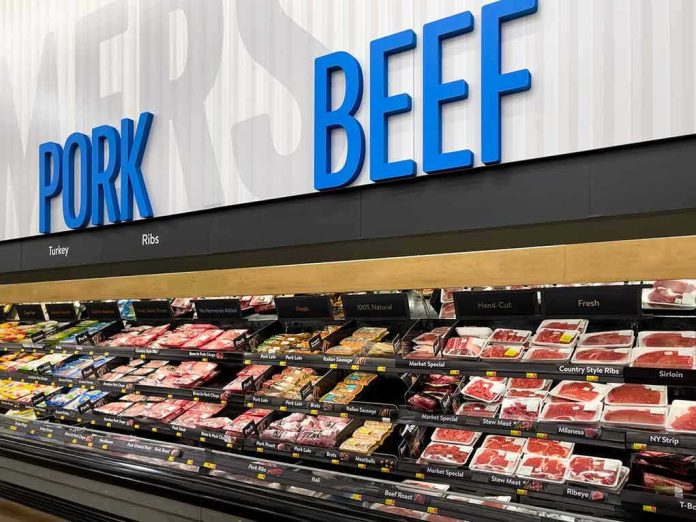
The proposal to import Argentine beef has stirred a hornet’s nest in Wyoming, with ranchers decrying it as an “absolute betrayal” of American farmers.
Story Highlights
- Wyoming ranchers feel betrayed by proposed Argentine beef imports.
- The proposal aims to stabilize U.S. beef prices but faces backlash.
- Concerns over food safety and market impact are central to the debate.
- The controversy underscores tensions in agricultural policy.
Wyoming Ranchers React to Import Proposal
Wyoming beef producers have reacted with outrage to the suggestion of importing beef from Argentina, viewing it as a severe blow to their operations. The proposal, made during a recent policy discussion, has been labeled an “absolute betrayal” by those whose livelihoods rely on the domestic beef market. Ranchers argue that this move undermines American agricultural interests, bringing foreign competition into a sector already struggling with volatility.
The timing of this proposal could not be worse for Wyoming’s cattle ranchers, who have been navigating the challenges of fluctuating beef prices due to market disruptions. The idea of adding foreign beef into the mix has agricultural stakeholders concerned about the potential impacts on their businesses and the broader rural economy.
Economic and Cultural Stakes
For Wyoming, a state with deep-rooted ranching traditions, the beef industry is not just an economic pillar but a cultural one as well. The import proposal has sparked fears that introducing Argentine beef could drive down prices, slashing profits for domestic producers. Agricultural economists warn that the increased competition could depress prices further, harming rural economies dependent on cattle production.
Food safety experts have raised concerns about the history of foot-and-mouth disease in Argentine beef, although modern controls are said to mitigate these risks. Still, consumer safety remains a significant talking point for opponents of the policy, who argue that keeping American beef on American tables is crucial for both economic and health reasons.
Balancing Policy and Protection
Policymakers are caught in a balancing act between stabilizing consumer beef prices and protecting domestic producers. While some consumer advocates suggest that imports could lead to lower prices for the public, the prevailing sentiment among Wyoming ranchers and their associations is one of staunch opposition. They assert that the proposal fails to consider the broader implications for the agricultural community.
The debate continues as stakeholders on both sides make their cases, with ranchers ramping up lobbying efforts to prevent the policy from advancing. The controversy has highlighted the fragile relationship between rural communities and policymakers, underscoring the need for solutions that support American producers without compromising economic stability.







